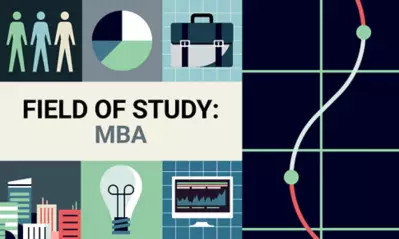What’s the difference between bachelor’s and associate degrees?

Written by Michael Feder

Reviewed by Marc Booker, PhD, Vice Provost, Strategy

If you’ve decided to return to school, you might be wondering about the difference between bachelor’s and associate degrees. Different types of degrees fulfill varying educational needs, and what’s good for one person may not make sense for another.
Let’s explore associate degree vs. bachelor’s degree programs, including how online options for both can help you progress toward your career goals without disrupting your work and home life.
Should I get an associate degree before a bachelor’s degree?
Getting your associate degree before a bachelor’s degree isn’t a requirement. Many individuals choose to pursue a bachelor’s degree directly after high school or whenever they decide to pursue higher education. Since bachelor’s degree programs typically include the foundational coursework found in an associate degree, there’s sometimes a sense that one leads to the other.
However, there are a few reasons why one may choose to pursue an associate degree. For example, certain types of associate degrees are vocational and more tied to a specific trade outcome. This can teach you skills to enter your desired career.
Some bachelor’s degree programs enable you to transfer credits earned in your associate degree toward your four-year degree. This can potentially help reduce the overall cost of obtaining a bachelor’s degree if finances are a concern.
Key differences between associate and bachelor’s degrees
Bachelor’s and associate degrees are both options that prepare students with specific knowledge and skills in their chosen field but can offer different benefits too. Below are the major differences between bachelor’s and associate programs.
Program length
Associate and bachelor’s degree programs have different time requirements. Associate degree programs typically take about two years of full-time study to complete compared with four years of full-time study for a bachelor’s. While bachelor’s degree programs involve a more extensive time commitment, they also typically offer a more comprehensive education.
An associate degree program may be a better fit if you need to enter the workforce or earn credentials quickly.
Cost
Associate degree programs typically cost less than bachelor’s programs because associate degrees generally require 60 credits while bachelor’s degrees require 120.
Level of study
One of the biggest differences between bachelor’s and associate degrees is the depth of study. While some associate degree programs, such as criminal justice, information technology and cybersecurity might provide specialized training, other associate degrees offer a more generalized education that provides foundational knowledge across various subjects. This broad approach can benefit students who want to gain essential skills and explore different fields of interest.
Bachelor’s degrees allow students to focus more on specialization and comprehensive expertise in their chosen field. This in-depth study equips graduates with more comprehensive skills and a thorough understanding of the subject matter.
Career opportunities
Associate and bachelor’s degrees can provide an educational and professional advantage, especially compared with high school diplomas or their equivalents. However, career opportunities can vary significantly between associate degrees vs. bachelor’s degrees.
It is possible to begin a career with an associate degree . Some industries in which this is the case include business, information technology, cybersecurity and criminal justice. That means those who want quicker entry into the workforce may like the idea of earning an associate degree.
On the other hand, bachelor’s degrees typically can offer more career opportunities because of the well-rounded education they offer. Graduates with bachelor’s degrees are often eligible for higher-level positions, management roles and specialized fields requiring in-depth knowledge and skills that are earned in a four-year program.
Ultimately, while both degrees can lead to fulfilling careers, bachelor’s degrees generally provide a broader range of opportunities and long-term benefits.
Can I transfer credits from an associate degree program to a bachelor’s degree program?
One benefit of an associate degree program is that you can often transfer those credits to a bachelor’s degree program, but it’s not as cut and dry as you might expect.
Several factors can influence the transfer process. Ensure the associate degree you earn is from a properly accredited institution. Most bachelor’s programs require this for credit transfers. You’ll also need to ensure those completed courses are relevant to the bachelor’s program you want to pursue. Credits are more likely to transfer if they closely align with the bachelor’s degree curriculum.
Some community colleges and universities have articulation agreements with four-year institutions that define which credits are transferable and how they apply to specific programs. Additionally, schools often have a cap on the number of credits you can transfer and minimum grade requirements.
Transferring associate degree credits to online bachelor’s degree programs is one way to reduce the time it takes to earn that degree. If you have questions about the process, speak with academic advisors at your current and prospective schools to ensure you handle everything correctly. Transferability of credit is at the discretion of the accepting institution. It is the student’s responsibility to confirm whether credits will transfer to their institution of choice.
Can you pursue graduate education with an associate degree?
Graduate studies require a bachelor’s degree as a prerequisite. Some graduate programs may also request specific test scores and other requirements. An associate degree may be a steppingstone toward a bachelor’s program, but it won’t satisfy graduate program requirements.
While associate degrees provide foundational educational experiences, a graduate program requires a deeper understanding and expertise of the field you plan to study. Developing this knowledge is made possible as part of a bachelor’s program.
Although it’s possible to find a graduate program that does not require an essay or test scores for admissions, a bachelor’s degree from an accredited institution is a must.
Consider the difference between bachelor’s and associate degrees that suit your needs
Which educational path makes the most sense for you? It largely depends on your educational and career priorities, preferred timeline and financial situation. When you look at the difference between bachelor’s and associate degrees, you’ll see that both programs can prepare you for career opportunities. Which you pursue is ultimately based on your situation and preferences.
One of the best ways to make this decision is to speak with current professionals, academic advisors or career counselors with experience in your preferred field. They can help point you in the right direction of the program or programs you might pursue and answer questions about potential outcomes.
UOPX offers both online associate and bachelor’s degree programs
. To learn more about University of Phoenix degree programs and transfer credit opportunities
, request more information today
.

ABOUT THE AUTHOR
A graduate of Johns Hopkins University and its Writing Seminars program and winner of the Stephen A. Dixon Literary Prize, Michael Feder brings an eye for detail and a passion for research to every article he writes. His academic and professional background includes experience in marketing, content development, script writing and SEO. Today, he works as a multimedia specialist at University of Phoenix where he covers a variety of topics ranging from healthcare to IT.

ABOUT THE REVIEWER
Dr. Marc Booker, University of Phoenix Vice Provost for Strategy, has more than two decades of experience working with online and distance education students at the post-secondary level. He currently oversees critical path academic initiatives to improve the student experience. Dr. Booker is a regular speaker, author and contributor to national higher education associations.
This article has been vetted by University of Phoenix's editorial advisory committee.
Read more about our editorial process.
Read more articles like this:


